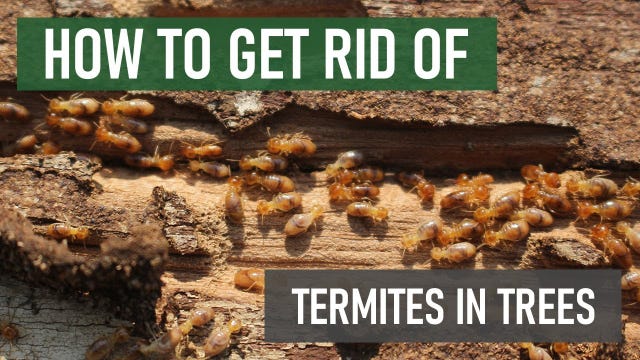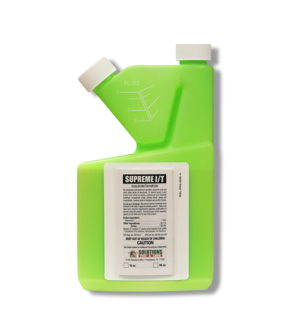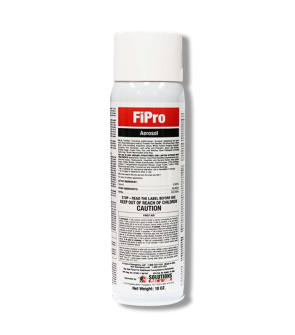Gain access to personalized product screening, the best pricing, rewards, and more!
Most Effective Products
How to Get Rid of Termites in Trees Near Home
This page is a general DIY guide to discuss the methods for preventing and controlling termites in trees within your home property. Implementing our products and techniques suggested in this article can help you successfully control termite populations before the infestation spreads.
Most homeowners are aware of termite infestations when the spring and summer season arrives. One area in your yard that often goes unnoticed for termite monitoring is live or dead trees. These insects are known for causing serious destruction on wooden surfaces like these and more.
They cause massive destruction to these surfaces because termites specifically feed on cellulose. Cellulose is the substance found in the plant's cell wall, or more precisely, the hard inner material of the tree. Since few pests feed on these food sources, there is less competition for the termites in terms of nutrients and breeding sites.
The most common termite to infest your tree is the Formosan termite, but depending on whether it is live or dead can determine the species of termite. Once they make themselves home in your tree, it is only a matter of time before they spread to your house. Termites are a serious issue, and the faster you control your termites with the recommended products and tips in this DIY guide, the less risk of destruction of your home and other wooden structures on your property.
How to Tell if Termites Are In Trees

Termites are not obvious pests, but they leave signs of their presence in your trees. Here are some signs to look out for when inspecting for termites in the trees in your home yard:
- Look around the base of your tree for frass, termite droppings, or termite wings. Frass looks like sawdust but has a more granular appearance.
- Termites are drawn to moist areas, especially around wooden surfaces. Some termite species, like Formosan termites, create mud tubes leading from the soil to the tree trunk, branches, or adjacent sites. These tubes provide a safe way for termites to travel from place to place.
- With a shovel, lightly dig the soil around the base of your tree. Some termite species, like eastern subterranean termites, create nests in soft, moist soil. Clusters of small, white eggs in the soil indicate this.
- Since termites feed on cellulose, you are bound to find tunnels inside and outside the tree. As a result, there may be missing bark or a hollow sound escaping from the trunk when you knock against it.
- Observe the branches for a lack of leaf growth. Many termite species destroy trees from their roots, resulting in a loss of water and nutrients for the trees to consume. Most termite species destroy the tree from the roots, which can cause loss of water and nutrients.
What To Do If Termites Are in Trees
If you have noticed signs of termites around your property, it may be necessary to perform a trench treatment around your home's foundation. When applying or mixing any insecticide material, you will need to wear the proper personal protective equipment (PPE).
Failure to address termite infestations in your trees can lead to extensive repairs to your yard and home's foundation. If you find your tree is heavily infested with termites, it would be best to remove it from your property properly. Heavily infested trees can cause termites to spread to your home or weaken parts of the tree, falling on nearby structures.
Prune Infested Tree Parts

Termites normally infest dead or decaying wood but can travel into live trees, retaining moisture. The first thing to do is to prune away infected parts of the tree with a tree pruner, then immediately dispose of it through a shredder or complete removal from the property.
Ensure no limbs or other parts of the infested tree are close to other trees, structures in the yard, or the home. If so, prune these overgrown parts until they are no longer within reach of these sites, then immediately dispose of discarded foliage off your property or through a shredder.
If you see signs of termites or the pest itself within infested branches, prune them away. This not only removes some of the termites but also prevents them from spreading to other nearby trees.
Eliminate the Colony

Once you have determined which trees in your yard are infested with termite colonies - usually in the ground or underneath nearby buildings- spray an insecticide product labeled for termites.
Supreme IT is a 7.9% bifenthrin-suspended concentrate insecticide that controls various pests, including termites. As a repellent insecticide, termites can touch the product for up to 90 days after the application, leading to a quick elimination.
Supreme IT product label includes directions for controlling different termite species in different situations. For general termite control, we recommend you spray the outer surfaces of trees and the surrounding soil and conduct injection treatments.
To spray trees with Supreme IT, use a handheld pump sprayer to create a 0.06% emulsion by mixing 1 fluid ounce of product with enough water to create 1 gallon of finished solution.
Spray 3 feet up the tree trunk from the ground, then spray in about a 3-foot radius around the base of the tree. This will kill any termites on treated areas and prevent reproductive termites, or alates, from landing on the tree to reinfest.
To conduct an injection treatment, prepare a solution of Supreme I/T at the same emulsion rate of 0.06%. Using the appropriate equipment, drill into the tree to reach the termite colony and galleries and inject the solution into the cavity. This treats all surfaces and tunnels the termites use to travel throughout the tree and eliminates the entire colony.
This product may only treat non-bearing fruit and nut trees and ornamental trees. Non-bearing fruit and nut trees will not produce a harvestable crop during the application season.
Keep children and pets away from treated areas until they are completely dry and 24 hours have passed after application.
Install Bait Stations
Lastly, install a termite bait station around your home or structure to monitor and kill any remaining termites. We suggest doing this around your house, as termites will likely move to another food source when trees are eliminated or treated.
Red Eye Termite Monitoring System is a low-profile bait and monitoring station for termites around homes. As a singular unit, this station has a high-cellulose attractant, a clear view on top for visual sighting of termites, and a unique red-eye monitoring system. The red eye is the red dot on top of the product in clear view.
When set up properly, observe when the station's red eye disappears. This is your alert that termites are active. Once termite activity has been confirmed, inject a product like FiPro Foaming Aerosol into the station to treat infesting termites. FiPro Foaming Aerosol contains 0.005% fipronil and will expand to treat the cavity, killing termites before they can spread.
Place one Red Eye Termite Monitoring System at least 5 feet away from the structure's drip edge and drill a hole into the ground about 2 inches in diameter. Insert the product into this hole until the dome is flush to the ground. For accurate monitoring, you will need to insert more than one of these products around your home or building's perimeter. Ensure 8 to 10 feet of space between each Red Eye Termite Monitoring System.
Replace the Red Eye Termite Monitoring System once the red eye drops or when 30 days have passed after applying termiticide.
Key Takeaways
Do Termites Live in Trees?
- Termites build their colonies in moist soil and decaying or moist wood, which can be found in live or dead trees. Termites in certain parts of live trees indicate that a part of the tree is already dead.
How to Treat Termites on Trees
- First, you should eliminate their food supply by pruning infested parts of the tree and then properly disposing of it. Once infested parts of the tree have been destroyed or removed from your property, apply a termite-labeled insecticide such as Supreme IT. Apply this product to the infested tree cavity, but you may have to drill to reach this part of the tree. After the colony has been treated with termiticide, the last thing you will need to do is install a termite bait station like the Red Eye Termite Monitoring System.
Can A Tree With Termites Be Saved?
- Trees with termites can be saved depending on how fast you treat the tree and the size of the infestation. A tree severely infested with termites must be removed from your property.









